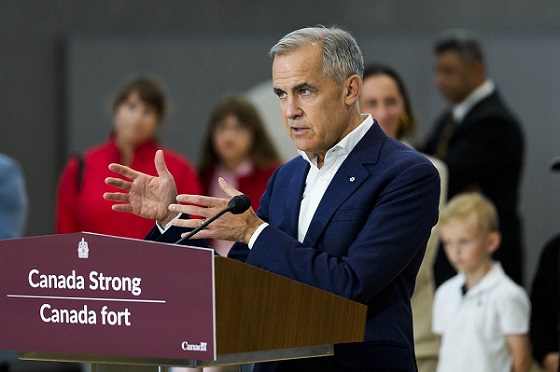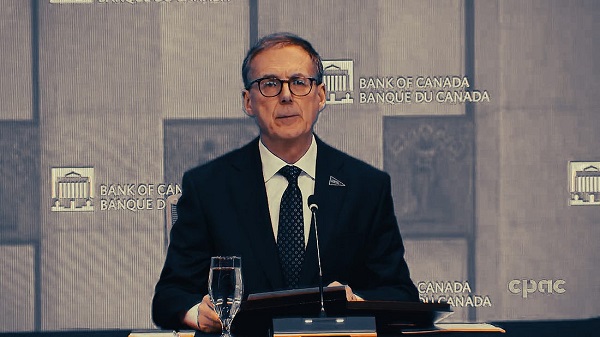Opinion
2019 will be cumulative year for Red Deer, or not?

2019 will be a cumulative year. The Canada Winter Games will have occurred and the provincial and federal elections will have played out.
Federally will see whether the Liberals in Ottawa get a passing grade and a second term or sent to the opposition side, but locally the Conservatives should retain their seats in Red Deer.
The only uncertainty may be if incumbent Earl Dreeshen, retires after turning 65 on July 9 2018. There are rumours that he may retire and our mayor who is learning French as I write this column may contest the Conservative nomination. There are other local, county and other municipal election waiting for Mr. Dreeshen to retire and contest the Conservative nomination and it looks promising.
Who ever ends up as the Conservative candidate in the 2019 federal election, they are not expected to lose. There is no expectation of a cabinet post, currently, if the Conservatives do beat the Liberals, unless a strong candidate is placed before the electorate.
Most of the attention, locally, will be on the provincial election and whether the NDP will be given a second term. There is a lot of interest in the UCP under new leader, Jason Kenney as seen in the media, with the vacating of the seat in Innisfail/Sylvan Lake.
The city of Red deer has 2 NDP MLAs, neither in cabinet and may lose their party’s nominations in their ridings, if contested.
The party could protect their nomination and prevent them from being contested but I do not see that happening. Our local MLAs along with many others were elected on the coattails of Rachel Notley, but that won’t happen in 2019. Premier Notley needs some star candidates, candidates with proven name recognition like former city councillor; Paul Harris to help the NDP retain power.
Provincially we have interest in the Alberta Party and there are rumours of some names interested in running under their new leader and former Health Minister and former Edmonton Mayor Stephen Mendel.
Unfortunately, if the goal is to keep the NDP in government people will vote NDP, but if the goal is to defeat the NDP then the most viable option is the UCP, under our current first-past-the-post electoral process.
The second point of interest is the urbanization of Alberta. The NDP appeals to the more progressive and higher educated voters which are more often found in the larger urban centres like Calgary and Edmonton. Red Deer has reached their plateau in growth and may be inconsequential in the political arena unless there is a star candidate for the governing party.
Declining population, lack of interest by the various governments in our infrastructure, like expanding our hospital, for example gently signifies our irrelevance unless we were to offer strong candidates, “star” candidates if you will.
So when 2019 comes to an end, will we rejoice with fond memories of the Canada Games? Will we have strong representation in Ottawa and Edmonton? Or will it be just another missed opportunity in politics with 2 busy forgettable weeks of sports? I vote for fond memories and strong representation, how about you?
National
Watchdog Presses Ottawa to Release Hidden Lobbying Rulings

With nine cases still undisclosed and a reappointment controversy surrounding the Lobbying Commissioner, the group warns that federal enforcement of ethics laws is losing public trust
More than a year has passed. Ten separate lobbying violations. Nine of them returned by the RCMP without prosecution. Zero public rulings. And a Commissioner who was quietly re-appointed for another seven-year term by the Trudeau regime.
What am I describing? A third-world dictatorship? Nope. Welcome to Ottawa—where democracy dies behind closed doors, and corporate lobbyists write the laws under the table.
Today, Democracy Watch, the last half-functioning watchdog in this country, blew the whistle. Again. They released a bombshell press release accusing Nancy Bélanger, Trudeau’s handpicked Lobbying Commissioner, of hiding her rulings on serious violations of the Lobbying Act. These aren’t minor infractions. We’re talking about shady dealings by major players: Facebook, WE Charity, SNC-Lavalin, and Imperial Oil—names you may remember from past scandals the media tried to memory-hole.
The facts are simple. Democracy Watch filed official requests to get these rulings. The RCMP, under Trudeau’s appointees, delayed disclosure for two years. Bélanger’s office extended its own deadline, then just… never released them. That’s illegal, by the way. But when the Liberals are in charge, the law doesn’t apply to them—only to you.
Now, why would they bury these reports? Well, ask yourself: who benefits?
Start with Facebook. Back in 2018, Kevin Chan—their top Canadian fixer—was caught giving “advice” to Cabinet ministers while failing to register as a lobbyist. Not exactly subtle. Then there’s WE Charity, Trudeau’s favorite shell organization for funneling money to friends and family. They handed out luxury trips to Bill Morneau’s family. Did they face charges? Nope. SNC-Lavalin—remember them? The company Trudeau went to the mat for in 2019, firing his own Attorney General to protect. And Imperial Oil? They lobbied Andrew Scheer and Karina Gould at a corporate event they sponsored. Nothing to see here, folks.
Here’s the question no journalist in Ottawa will ask: Did Nancy Bélanger bury these rulings in exchange for her reappointment last December? Did she gut the Lobbyists’ Code of Conduct, water down the rules, and turn a blind eye to violations just to keep her job? It’s not a conspiracy theory—it’s an obvious incentive. And it stinks.
Democracy Watch co-founder Duff Conacher was blunt: “By continuing to hide her rulings on nine lobbying violations, Commissioner Bélanger is covering up scandalous situations, protecting the lobbyists and politicians and public officials they were lobbying.”
That’s the polite version.
The real version? The Trudeau Liberal regime—and yes, we’re still calling it the Trudeau regime even with Mark Carney as his bland globalist replacement—is corrupt to its core. This is a government that protects its friends, buries oversight, and weaponizes institutions like the RCMP and the Office of the Lobbying Commissioner to silence dissent and cover up for insiders.
Just look at the pattern:
- RCMP Commissioner Brenda Lucki was Trudeau’s puppet.
- Her successor, Michael Duheme, was appointed after the RCMP “let off” the lobbyists.
- Bélanger, who failed to disclose 10 rulings, gets another 7 years in power.
Coincidence? Please.
Eighty percent of Canadians—across the spectrum—say they’re concerned about unethical lobbying. And they should be. Because what we’re seeing isn’t just a few bad actors. It’s institutionalized corruption. And worse—it’s bipartisan silence. Where is the outrage? Where is the mainstream press? They’re too busy fact-checking memes and writing hit pieces on Pierre Poilievre to ask why the Lobbying Act has been turned into toilet paper.
The Liberal swamp didn’t get drained. It got deeper. And if you think electing a new face like Mark Carney will change anything, think again.
Carney was Trudeau’s right-hand globalist — a man who cut his teeth at Goldman Sachs, then went on to run both the Bank of Canada and the Bank of England. He didn’t come back to serve Canadians — he came to manage them, like assets on a spreadsheet. He now rules Ottawa like a boardroom, where accountability is a nuisance and democracy is a branding exercise.
The Liberal swamp didn’t get drained. It got deeper. And if you think electing a new face like Mark Carney will change anything, think again.
Lets be clear: What this country needs isn’t another bureaucratic shuffle. We need a reckoning. We need real transparency. And we need to dismantle the corrupt machinery that allows lobbyists, politicians, and unaccountable commissioners to play god behind closed doors.
This isn’t about left or right. This is about the survival of Canadian democracy.
Because right now, it’s being auctioned off—one lobbying meeting at a time.
Opinion
Bill Gates Shakes Up the Climate Discussion

Bill Gates’ new climate letter made some people angry and others happy. Everyone has an opinion. Today I share mine. Image: Grok.
 The Honest Broker
The Honest Broker
It is not just his three truths, but the fact that he said them out loud
Wednesday, in his periodic letter to the world, Bill Gates shared three truths about climate change — and shook up the climate discussion. While the longer term implications of his letter are uncertain, early signs are that Gates has injected a welcome dose of climate realism into the discussion.
Here are his three truths (and I encourage everyone to read his whole letter):
- Climate change is a serious problem, but it will not be the end of civilization;
- Temperature is not the best way to measure our progress on climate;
- Health and prosperity are the best defense against climate change.
For most THB readers, these truths will be well understood, even common sense, and will seem neither shocking nor scandalous.
But for some steeped in climate advocacy grounded in visions of “existential threat” or a looming apocalypse, Gates’ truths have rocked their world.
Some examples from the activist media:
- CNN: “a stunning claim”;
- Politico: “soft pedals climate”;
- Axios: “escalates debate with scientists”;
- The New Republic: “we shouldn’t be listening to people like him”
Activist climate scientists joined their fellow-traveling media critics, criticizing the substance of Gates’ letter or expressing concerns that their political enemies might welcome it — Here are a few examples:
- Michael Mann: “This is horrifying . . . [climate change] represents an existential threat, exacerbating global security threats, threatening water and food supplies, leading to massive damage. . . it’s like a game of soft climate denial bingo”;
- Jonathan Foley: “I stopped listening to Bill Gates years ago. You should stop too”;
- Michael Oppenheimer: “{h]is words are bound to be misused by those who would like nothing more than to destroy efforts to deal with climate change.”
Of course, at the other end of the spectrum, there is President Donald Trump, who posted the following, which is just as over-the-top as the reactions from climate activists:
Just like the climate activists, President Trump is treating the letter as an ink blot for political messaging, rather than on its own merits.
I suspect the president does not agree with this statement by Gates:
“Climate change is a very important problem. It needs to be solved, along with other problems like malaria and malnutrition.”
From my perspective, Gates’ letter is a welcome contribution to a growing chorus of climate realism and energy pragmatism.
I’ve been asked by several people if I think Gates reads THB or my work — I doubt it, or else he wouldn’t have made a big mistake in his letter suggesting that extreme climate scenarios are today implausible due to climate policy successes. They are implausible because they were always wrong about coal.
I’ve never met Gates, but Bill should definately read THB!
Yesterday, as I settled into my seat for the flight back from Florida (where I spoke at New College) I was invited on very short notice to write an op-ed for the NY Post on Gates letter. I wrote it on the plane and sent it in somewhere over Oklahoma.
I reproduce the op-ed in full below. You can read it at the NY Post site here.
Why Bill Gates turned on the alarmists, and decided climate change isn’t the apocalypse (NYP title)
Earlier this week, Microsoft co-founder and billionaire philanthropist Bill Gates dropped a truth bomb into the discussion of climate and energy policy. His missive sent the climate lobby into a tizzy as he joined a growing chorus of voices aligned with today’s science and policy consensus on climate.
Gates actually shared three truth bombs, and let’s take a look at each.
Truth #1: Climate change is a serious problem, but it will not be the end of civilization
Here Gates recognizes that the most extreme projections of future climate change have been dialed back considerably over the past decade. Gates explains correctly, “the current consensus is that by 2100 the Earth’s average temperature will probably be between 2°C and 3°C higher than it was in 1850.”
This consensus has rapidly emerged not because the world has rapidly reduced emissions (as Gates incorrectly asserts), but rather because scientists have recognized that those extreme scenarios that have dominated climate research and policy were actually off target from the start.
Specifically, in work pioneered by my colleague Justin Ritchie of the University of British Columbia almost a decade ago, we now know that the previous generation of climate scenarios foresaw a world rushing headlong into coal energy to power the world.
Coal is the most carbon-intensive fossil fuel and a global energy system dominated by coal would indeed have had massive emissions with correspondingly largest effects on climate.
In reality, rather than in models, our research shows the world is not rushing into coal and the scenarios that projected as much as a six-fold increase in coal consumption are already implausible. The real world has already departed substantially from these projections.
In recent years, projected global temperature increases to 2100 have been successively revised downwards. Earlier this month the Norwegian group DNV issued its “most likely” projection for global temperatures this century to be a 2.2C increase and achievement of net-zero emissions by the 2090s.
These achievements would not hit the targets of the 2015 Paris Agreement under the U.N Framework Convention on Climate Change, but they are far from a global existential threat, according to the projections of the Intergovernmental Panel on Climate Change.
The new consensus is so robust that those taking Gates to task on this point might be considered today’s new climate deniers.
Truth #2: Temperature is not the best way to measure our progress on climate
For many, Gates assertion would appear obvious. He explains, “the global temperature doesn’t tell us anything about the quality of people’s lives.”
Consider the remarkable progress made over the past 150 years with respect to the human impact of extreme weather events.
Way back in the 1870s — when global temperature were supposedly ideal — approximately 50 million people died globally related to extreme weather, particularly related to an extreme El Nino event of 1877-88.
The 1870s also saw the Great Midwest Wildfires of 1871 which killed as many as 2,400 people, the massive 1872 Baltic Sea flood, a 1875 midwestern locust swam of an estimated 12.5 trillion locusts, the 1878 China typhoon that killed as many as 100,000 people, and the U.S. experienced 6 landfalling major hurricanes in the 1870s, compared to just 3 in the 2010s.
It is not widely appreciated, but 2025 (still with two months to go), is currently on track for the lowest global death toll from extreme weather in all of human history. Part of that is good fortune to be sure — for instance, the Northern Hemisphere is well below average in terms of tropical cyclone activity.
However, 2025 fits a remarkable long-term trend of lives improving due to advance in the applications of science and technology in preparing for disasters, coupled with the consequences of sustained economic growth around the world.
Sustaining that track record will take concentrated effort, but there is no reason that the human condition cannot continue to dramatically improve this century even as temperatures warm another degree or so.
Truth #3: Health and prosperity are the best defense against climate change
To understand this claim, there is no need to look at futures in computer models, one just needs to look at the world as it is today.
Think about it. Would you feel more protected against the vagaries of climate variability and change if you lived in one of the world’s poorest countries or one of its richest?
Now imagine if everyone around the world enjoyed the economic and technological advantages of the United States. Of course resiliency to changes in climate would be much greater if everyone around the world were as wealthy as those of us in the United States. As Gates observes: “Development doesn’t depend on helping people adapt to a warmer climate — development is adaptation.”
Gates includes what might have been a fourth truth, and one we should not forget: “Climate change is a very important problem. It needs to be solved, along with other problems like malaria and malnutrition.”
Understanding the true nature of a problem is a key first step in effectively addressing it. Climate change is indeed real, but it is not the apocalypse.
Comments welcomed! Please keep them on subject and as usual, no comments of a personal nature about anyone, thanks!
Before you go — If you think that we are making progess on climate realism and energy pragmatism and would like to see even more, then please click that “ Like” to let everyone know. More likes mean that THB rises in the Substack algorithm and gets in front of more readers. More readers mean that THB reaches more people in more places, broadening understandings and discussions of complex issues where science meets politics. Thanks!
Like” to let everyone know. More likes mean that THB rises in the Substack algorithm and gets in front of more readers. More readers mean that THB reaches more people in more places, broadening understandings and discussions of complex issues where science meets politics. Thanks!
For the full experience, upgrade your subscription.
-

 Business2 days ago
Business2 days agoCanada heading into economic turbulence: The USMCA is finished and Canadian elbows may have started the real fight
-

 Business2 days ago
Business2 days agoBill Gates walks away from the climate cult
-

 National2 days ago
National2 days agoCanadian MPs order ethics investigation into Mark Carney’s corporate interests
-

 National2 days ago
National2 days agoCanada’s NDP is now calling women ‘non-males’
-

 Banks2 days ago
Banks2 days agoBank of Canada Cuts Rates to 2.25%, Warns of Structural Economic Damage
-

 Business2 days ago
Business2 days agoFord’s Liquor War Trades Economic Freedom For Political Theatre
-

 Health2 days ago
Health2 days agoLeslyn Lewis urges Canadians to fight WHO pandemic treaty before it’s legally binding
-

 Business22 hours ago
Business22 hours agoCanada’s attack on religious charities makes no fiscal sense












